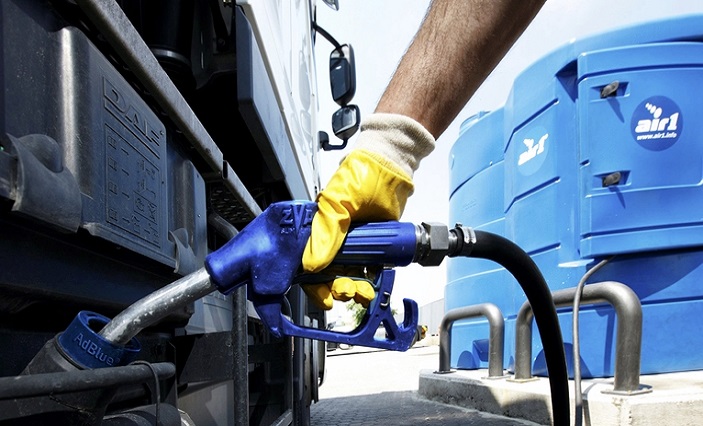Introduction
In recent years, the transportation and heavy machinery industries have experienced a significant shift in how they manage emissions and engine performance. Among the many innovations, Diesel Exhaust Fluid (DEF) has emerged as a cornerstone of environmental compliance and operational efficiency. As the demand for DEF continues to grow, many organizations are turning to Bulk Diesel Exhaust Fluid as a cost-effective, reliable solution for maintaining large fleets and heavy-duty vehicles. This article explores the importance of DEF, the benefits of buying in bulk, storage considerations, and future trends that fleet operators and business owners need to know.
Understanding Diesel Exhaust Fluid (DEF)
Diesel Exhaust Fluid is a non-toxic, colorless solution made of 32.5% urea and 67.5% deionized water. It is used in Selective Catalytic Reduction (SCR) systems to reduce harmful nitrogen oxide (NOx) emissions from diesel engines. When injected into the exhaust stream of a diesel engine, DEF breaks down NOx into harmless nitrogen and water vapor, thus significantly decreasing the environmental impact.
The use of DEF has become standard across various industries due to stringent regulations such as the Environmental Protection Agency (EPA) emission standards and similar mandates globally. Without DEF, diesel engines cannot meet these emission regulations, which may result in heavy fines or engine derating.
Why Bulk DEF Matters for Fleet Operations
For businesses that operate large fleets, purchasing DEF in small containers can be inefficient and costly. This is where Bulk Diesel Exhaust Fluid becomes not just practical but essential. By investing in bulk quantities, companies can reduce operational costs, ensure continuous supply, and streamline logistics.
1. Cost Efficiency
Buying DEF in bulk typically lowers the price per gallon, saving substantial amounts over time, especially for businesses with high consumption rates. The economies of scale make it possible to allocate budgets more effectively and invest savings in other areas of operation.
2. Operational Convenience
Having DEF readily available onsite eliminates the need for frequent purchases or trips to refueling stations. Fleet managers can refill their vehicles quickly, reducing downtime and improving productivity.
3. Supply Chain Reliability
DEF shortages or price spikes can disrupt operations. Maintaining a steady inventory of Bulk Diesel Exhaust Fluid allows businesses to remain insulated from market volatility and ensures continuous compliance with emission regulations.
Proper Storage and Handling of Bulk DEF
To maintain the integrity of DEF, it’s essential to follow proper storage and handling procedures. Urea is sensitive to temperature, light, and contamination, so care must be taken from the moment of delivery to the point of use.
1. Temperature Control
DEF should be stored at temperatures between 12°F (-11°C) and 86°F (30°C). Exposure to extreme temperatures can degrade its quality. In freezing conditions, DEF may solidify, but it will return to its normal state upon thawing without any performance loss.
2. Contamination Prevention
DEF must remain free from contaminants, including dust, dirt, and other fluids. Only dedicated, sealed systems should be used for storage and dispensing. Using incorrect equipment or containers can introduce impurities that damage the SCR system.
3. UV Light Protection
DEF should be kept out of direct sunlight. UV rays can break down the solution over time, reducing its effectiveness. Opaque storage tanks or those kept in shaded areas help preserve DEF quality.
4. Material Compatibility
Storage tanks, pumps, and nozzles should be made of materials like stainless steel or high-density polyethylene (HDPE) that do not react with urea. Incompatible materials can corrode or cause contamination.
Choosing the Right Bulk DEF Supplier
Selecting a reliable supplier for bulk DEF is crucial to maintaining engine health and compliance. Here are some key factors to consider:
1. Product Quality
Ensure the supplier adheres to ISO 22241 standards, which specify requirements for DEF purity. Low-quality DEF can damage the SCR system and lead to costly repairs.
2. Flexible Delivery Options
Suppliers should offer flexible delivery schedules that align with your operational needs. Some providers offer real-time tracking and automated refill systems to prevent stockouts.
3. Support and Training
A good supplier will not only provide the product but also offer guidance on installation, usage, and maintenance. Training for staff can go a long way in minimizing errors and maximizing efficiency.
4. Environmental Responsibility
Consider working with suppliers who follow environmentally responsible practices, such as offering recycling programs for used containers or using fuel-efficient delivery methods.
Environmental and Regulatory Benefits
Using DEF is not just about compliance—it’s about contributing to a cleaner environment. The reduction of NOx emissions plays a significant role in improving air quality, reducing acid rain, and mitigating health risks associated with diesel exhaust.
Agencies around the world are tightening emission standards to combat climate change and pollution. Fleet owners and industrial operators who invest in systems that use Bulk Diesel Exhaust Fluid are aligning themselves with these sustainability goals, building a more environmentally responsible brand image.
Bulk DEF Use Across Industries
The application of bulk DEF isn’t limited to transportation. Many industries rely on diesel-powered equipment and vehicles, making DEF a critical resource in their operations.
1. Agriculture
Modern farming equipment, including tractors and harvesters, is required to meet emission standards. Farmers often purchase DEF in bulk to maintain a seamless planting and harvesting schedule.
2. Construction
Heavy machinery used in construction sites operates under tough conditions and often runs for extended hours. Bulk DEF ensures there are no interruptions due to DEF shortages.
3. Logistics and Transportation
Fleet operators managing trucks and delivery vehicles use DEF daily. Bulk delivery systems reduce downtime and keep routes on schedule.
4. Mining and Industrial Sites
Remote locations like mines or large industrial complexes benefit from on-site bulk DEF systems, removing the need to transport small containers over long distances.
Cost vs. Risk: The Price of Not Using DEF Properly
Failing to use high-quality DEF or maintaining inadequate supply can lead to serious problems. These include:
- Engine Derating: Modern engines may automatically reduce power to prevent emissions violations if DEF levels are too low.
- SCR Damage: Contaminated or impure DEF can cause clogging or corrosion in the SCR system.
- Regulatory Fines: Non-compliance with emission standards can lead to costly fines or license suspension.
- Increased Downtime: Without a bulk DEF system, vehicles may need to be taken out of service just for refueling, reducing overall productivity.
Future Trends in DEF and Emissions Management
The future of DEF is closely tied to the evolution of diesel engines and emission standards. As governments continue to push for lower emissions, demand for DEF will remain strong. Emerging trends include:
- Smart DEF Monitoring Systems: These systems automatically track DEF levels and schedule refills, minimizing human error and ensuring optimal performance.
- Biodegradable Urea Alternatives: Research is underway to develop more eco-friendly formulations of DEF that further reduce environmental impact.
Integration with Electric Fleets: While electric vehicles are on the rise, diesel-powered equipment will remain dominant in many sectors for years. Hybrid systems may still use SCR technology.
Conclusion
As diesel engine technology evolves and environmental regulations tighten, the importance of Diesel Exhaust Fluid cannot be overstated. For organizations managing multiple vehicles or heavy-duty machinery, opting for reliable bulk DEF delivery services provides a cost-effective, and efficient solution. Proper storage, careful handling, and sourcing from trusted suppliers ensure that operations run smoothly and stay compliant with environmental standards. Embracing bulk DEF not only protects your equipment but also contributes to a cleaner and more sustainable future.



